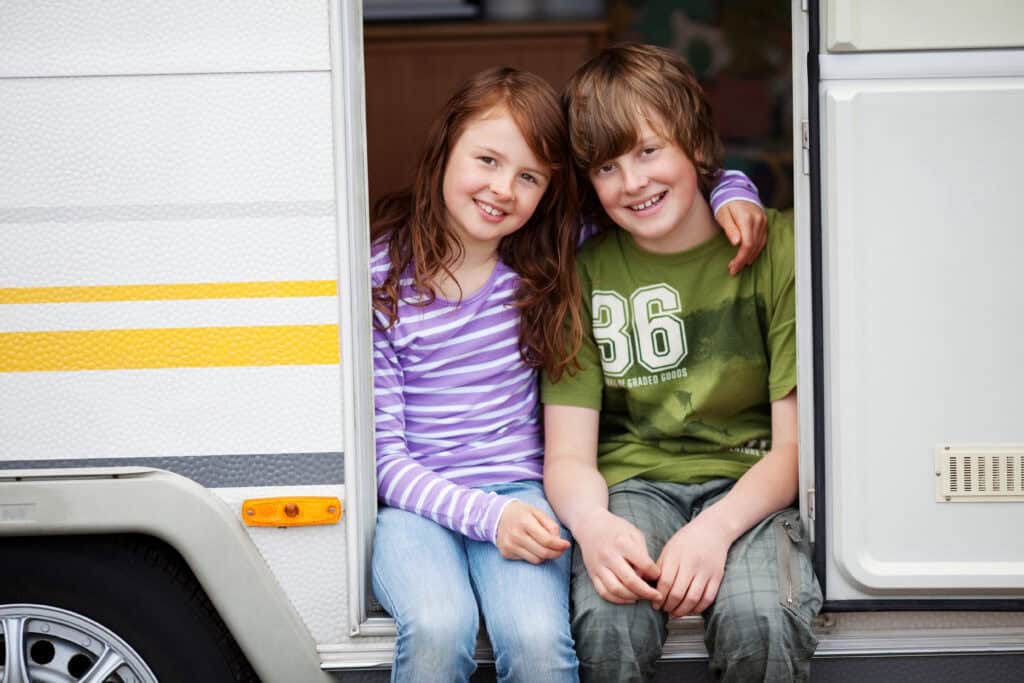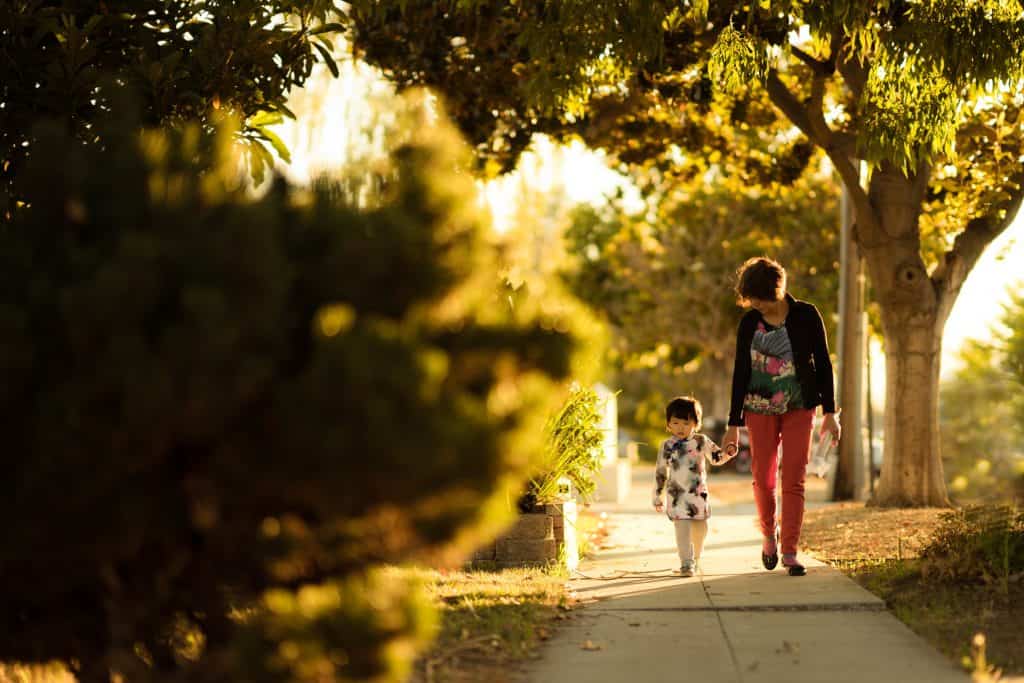Last updated on November 29th, 2024 at 12:10 pm
Wondering what Responsive Parenting is? Here’s what we can learn from foster carers about it.

What is Responsive Parenting?
What is responsive parenting? In my view, a Responsive Parenting definition would include:
- being attuned to your child’s needs
- being sensitive to their feelings
- responding with consistency and acceptance.
Over a number of years as a social worker, I’ve met many amazing foster carers who routinely offer responsive parenting to the children in their care.
Foster carers don’t always get a lot of recognition or praise. But they do a tough job and there’s a lot we can learn from them.
Here are 7 principles of nurturing parenting and some hopefully helpful advice on responsive parenting techniques:
1. The Role of Emotional Intelligence
One of the first things that strikes me about many foster carers is their patience. The best foster carers are robust, yet sensitive and empathic.
It’s a fine balance. While you have to have resilience about you, you also need to have sensitivity and emotional intelligence. Foster carers need to be prepared for what might get thrown at them (both figuratively and literally) but the ability to convey warmth is vital.
Emotional intelligence in parenting is about mentalisation. That means being able to understand what the other is experiencing, as well as understanding how behaviour impacts you and makes you feel.
Without this ability, we will only be reacting to challenging behaviour, rather than being in a position to de-escalate it.

2. Responsive Parenting and Warmth
A long way back, I attended training on mental health (both parental and within the community of children who had been looked after). One comment struck me and that was in relation to the potential development, and diagnosis of, schizophrenia.
It was that, although there are possible hereditary links, schizophrenia is often the product of a “high criticism, low warmth environment”. It’s stuck with me and it’s something I often think about in my own parenting.
I don’t know whether I always get the balance right. Some days, it feels like most of the comments that come out of my mouth are criticisms, but I also know that I tell and show my kids I love them a lot.
Or, now they’re getting older when they let me! Responsive parenting – or connection based parenting – is about tipping the scales the other way if you feel like you may have been critical of your kids. It’s about filling their buckets with enough warmth and hugs if they’ve been low lately.

3. Responsive Parenting Means Being Realistic
I think it’s fair to say that some foster carers have their work cut out for them at times. It’s not an easy option as a job and you have to be in it for the right reasons.
Because many experienced foster carers have generally “seen it all before”, they tend to keep calm(er) when things go wrong. They have realistic expectations about what might be achieved.
Responsive parenting means meeting the child where they’re at, rather than expecting the child to reach lofty thresholds of expectation. It’s important to champion our children while being truthful with ourselves about their capacity to achieve.
4. Responsive Parenting is About Acceptance
Parents tend to hope that their children will succeed. But more importantly, children just need to know that there is an unconditional acceptance of them as they are, rather than of what they could be.
What is Respectful Parenting? We all want the best for our kids, but sometimes our perception of what’s best for our kids isn’t actually what’s best for our kids. Sometimes it’s hard to shift that perception and meet our children where they’re at. However, we need to try and, where possible, be led by them. This is what is known as respectful parenting.
As parents, how many of us truly accept our children as they are? Do our expectations of them impact our ability to accept them? And does this then create barriers in our relationships with them?
Dan Hughes is a clinical psychologist who has written on the subject of Attachment-Focused Parenting and the treatment of children who have experienced abuse and neglect. He developed the concept of PACE (Playfulness, Acceptance, Curiosity and Empathy).
I loved the PACE training I did and I think it can be incorporated successfully not just into fostering relationships, but into any parent-child relationship. It’s a perfect approach when it comes to responsive parenting.
Here’s what PACE means in practice
P = Playfulness – Engage with your child in a playful manner to negate stress and defensiveness. I have no doubt that having fun is therapeutic!
A = Acceptance – Avoid strong senses of right and wrong. Give validity to what your child is saying and who they are.
C = Curiosity – Help the child to understand what is going on. Start sentences with “I wonder what you think? What do you think was going on?”
E = Empathy – Provide compassion and comfort. Let your child know that their feelings are not too overwhelming for you. Sit with them in their feelings.
More information on Dan Hughes and PACE can be found here.

5. Putting Boundaries In Place
We’ve talked about acceptance, and I’d put that into the ‘high warmth’ category. But, although high criticism isn’t beneficial for children, boundaries are.
A significant number of children coming into the care system haven’t had many (or any) boundaries in place and therefore struggle with any kind of rules. While they might fight against them initially, a part of all children craves boundaries.
They need a sense of simple structure and consistency. Consistency means safety and safety means the ability to thrive.
Many of the foster carers I’ve met are clear about their boundaries. They’re clear about what they will and won’t accept and have a sense of strength and self-respect in relation to this.
As our children grow older, in particular, it’s emotionally tough when they push back. We have to resist the temptation to be their friend, keeping those boundaries in place to help them feel safe.
6. Aspects of Power in Responsive Parenting
When there are too many boundaries, however, young people can feel powerless.
It’s important that everyone gets a say and that everyone feels like they are an integral and valued member of the family. Sometimes children who have moved from foster placement to foster placement retain a small element of power by rejecting their new carers before their carers can reject them.
Or they might refuse or hoard food. These behaviours often stem from feelings of powerlessness, fear and wanting some control over their lives.
Kids need to be given choices (however small) to empower them and help them feel valued.
Take a look at my article on helping kids overcome the negativity bias here.

7. Responsive Parenting and Honesty
The best foster carers are as honest as they can be with the children they care for. They do this while ensuring they pass on information in an appropriate and sensitive way. This might relate to the reasons they are in care or what has happened to their birth family.
Children know when we’re lying or withholding information. While things need to be couched in an age-appropriate way, we do need to be having relevant conversations with our kids.
I’d rather my kids feel able to ask me tough questions about sex and drugs than have to go elsewhere to get (possibly) inaccurate answers.
Responsive Parenting and the Impact of Trauma
Thankfully, not all children will experience trauma or loss. But we also never know when a traumatic or distressing event may happen. Bullying or sudden loss are two examples.
An understanding of trauma and its impact on the mind and body is helpful. There are some great books on this, including The Body Keeps The Score by Bessel Van Der Kolk.
I hope some of the ideas above help; while foster carers are trained, we as parents – more often than not – aren’t. We may not have to offer the same level of therapeutic parenting as some foster carers do, but many of the techniques are relevant to all parents. Particularly when we inevitably hit those bumps in the road.
More Info on Responsive Parenting…
If your child is experiencing low mood, take a look at Why Is My Child Depressed And What Can I Do?
If they’re experiencing anxiety, head to How NLP For Kids Can Help With Anxiety
If you’re keen to find out more about how to boost empathy in your child – particularly in boys – then go to How Do We Boost Empathy In Boys?






[…] a look at What We Can Learn From Foster Carers About Responsive Parenting for more […]